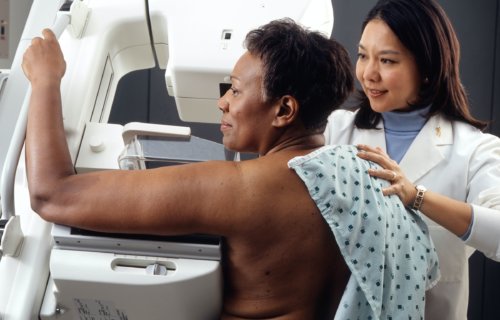ZÜRICH, Switzerland — Breast cancer spreads at night, new research shows, which could help target the disease with greater accuracy.
Tumors are most active while women sleep, according to researchers from ETH Zürich, making daytime therapy less effective. Study authors found these tumors are fueled by the hormone melatonin, produced in response to darkness. The findings also have implications for the timing of breast biopsies.
“When the affected person is asleep, the tumor awakens,” explains project leader Professor Nicola Aceto in a university release.
A study of 30 patients showed more cancerous cells developed at night. While examining mice, the disease was most aggressive during the day, since mice are nocturnal animals.
“Our research shows that the escape of circulating cancer cells from the original tumor is controlled by hormones such as melatonin, which determine our rhythms of day and night,” says first author Dr. Zoi Diamantopoulou.
Melatonin is produced by the pineal gland, a pea-sized organ at the base of the brain. It dictates our sleep patterns. The cancer-related phenomenon may influence future examinations of patients by oncologists. Results could differ depending on the time in which doctors take tumor or blood samples.
Researchers discovered the difference by accident
“Some of my colleagues work early in the morning or late in the evening; sometimes they’ll also analyze blood at unusual hours,” Prof. Aceto adds.
The Swiss Federal Institute of Technology team noticed samples taken at different times of the day had very different levels of circulating cancer cells. Another clue was the surprisingly high number of cancer cells found per unit of blood in mice compared to humans.
The reason was the lab rodents sleep during the day, which is when researchers collect most samples. To date, little attention has been paid to the question of when tumors spread – or metastasize. Scientists assumed they release such cells continuously.
However, the study in Nature turns the idea on its head, showing they mainly arise during the sleep phase of affected individuals.
“In our view, these findings may indicate the need for healthcare professionals to systematically record the time at which they perform biopsies,” Aceto says. “It may help to make the data truly comparable.”
According to the American Cancer Society, doctors in the United States will diagnose around 287,850 new cases of invasive breast cancer in 2022. Over 43,000 women will die from the disease.
South West News Service writer Mark Waghorn contributed to this report.

